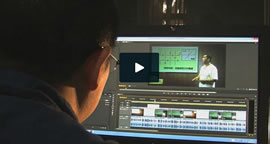Who actually gets access to MOOCs? And what are they getting access to?
 Claims about increasing access to higher education are at the heart of arguments for MOOCs, and rightly so; expanded access and greater equity in educational opportunity must be at the heart of any discussion about the future of higher education.
Claims about increasing access to higher education are at the heart of arguments for MOOCs, and rightly so; expanded access and greater equity in educational opportunity must be at the heart of any discussion about the future of higher education.
But access is a complex, even slippery, term. It means much more than the mere opportunity to enroll in a course just as access to the middle-class dream of home ownership meant much more than the opportunity to get a loan and move in for a while.
For access to be meaningful—and not just an empty advertising slogan—students must have a real chance, if they work hard, to succeed in getting a quality education.
How MOOCs measure up to their access claims can only be assessed by asking specific questions about the access they provide: Who is getting access to higher education through MOOCs? And to what?
It is in a close consideration of these questions that we find our best starting place for a more meaningful conversation about the value of MOOCs and the claims so often made about them.
[*Editor’s Note: This article is part of our new online forum called Symposium–where higher education professionals explore topics of urgency and controversy with their peers, often in a point-counterpoint format. In our first Symposium, our contributors address what might be called the “irrational exuberance” around online learning. We encourage you to visit the Symposium forum here: ecampusnews.eschoolmedia.com/symposium. We are also eager to read your brief thoughts and opinions, so be sure to leave your comments with any/all responses.]
Read more and contribute your thoughts at: ecampusnews.eschoolmedia.com/symposium.
- 25 education trends for 2018 - January 1, 2018
- IT #1: 6 essential technologies on the higher ed horizon - December 27, 2017
- #3: 3 big ways today’s college students are different from just a decade ago - December 27, 2017

